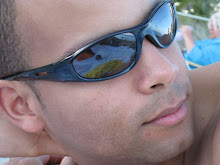

 This morning we were the invited guest of former Governor Sila M. Calderon at her foundation headquarters, El Centro Para Puerto Rico. We were given a tour of the facility and she lectured us about the mission of the organization. There are four principle aims: to reduce poverty an inequality, to empower women, urban revitalization, and ethics & social responsibility. The center focuses on facilitating workshops to integrate social programs in the community and they are hoping to foster a relationship with NYU.
This morning we were the invited guest of former Governor Sila M. Calderon at her foundation headquarters, El Centro Para Puerto Rico. We were given a tour of the facility and she lectured us about the mission of the organization. There are four principle aims: to reduce poverty an inequality, to empower women, urban revitalization, and ethics & social responsibility. The center focuses on facilitating workshops to integrate social programs in the community and they are hoping to foster a relationship with NYU.Julian Boal - Forum Theatre, Day Three
We began our performance workshop with a variety of warm up activities which elevate the energy and connectedness of the group as well as foster trust and strengthen relationships. Today's activities included:
1. Crossing the Circle - Everyone stands in a large circle and each participant takes the hand of one partner so the entire group is in pairs. The odd-person out stands in the center and looks for an opportunity to get out of the middle. This will happen because the other members of the group must make eye conact with someone across the circle and when agreed (silently), they will run to switch places with one another. The group is in pairs so it will be obvious which space is available (both partners cannot leave at the same time).
2. Pass the Clap - Still in a large circle, you pass a clap to someone across from you, who claps to show they have received the clap and then passes the clap off to someone else across from them. After this is mastered, several other sound and movement combinations are added (you have to see them to understand, but I will call them a swoosh, a soccer ball, and a belly throw). All four were going at one time, and it was wild, confusing, often incorrect but we were willing to adjust, and a lot of fun.
3. 2x3xBradford - Everyone stands facing a partner and they count to three, going back and forth - 1-2-3-1-2-3-1-2-3. When this is mastered, the first person replaces the number one with a sound and movement combination and the counting resumes, though one has been permanently replaced. Combination-2-3-Combination-2-3-Combination-2-3 etc. When this is mastered, the second person replaces number two with another sound and movement combination and the counting resumes - combination #1 - combination#2 - 3 - combination #1 - combination#2 - 3 - combination #1 - combination#2 - 3. When this is mastered, the first person replaces the number three with a third sound and movement combination and the counting resumes, but all numbers are now replaces with three distinct sound and movement combination.
 4. We Sing-You Act - the group was divided into two groups and each had to select a song that they would sing. One volunteer acted as conductor stopping the singing when the lyrics of the song indicated something visual. At the moment they stopped, the members of the other group had to each create an image of the last word or phrase that was sung. The facilitator then clapped to indicate that they should bring their image to life. One group chose the theme song to "The Fresh Prince of Bel Aire" and the other chose "Baby Got Back" (I couldn't make this up if I tried).
4. We Sing-You Act - the group was divided into two groups and each had to select a song that they would sing. One volunteer acted as conductor stopping the singing when the lyrics of the song indicated something visual. At the moment they stopped, the members of the other group had to each create an image of the last word or phrase that was sung. The facilitator then clapped to indicate that they should bring their image to life. One group chose the theme song to "The Fresh Prince of Bel Aire" and the other chose "Baby Got Back" (I couldn't make this up if I tried).
Julian then indicated that we should return to our forum theatre groups and devise the scripts for our plays. If you click the image above, a larger version of the picture will appear and you will see the diagram that he provided to indicate the structure of a forum theatre play.
1. The protagonist (oppressed) and the antagonist (oppressor) must be clearly identified and it is helpful if both have allies, though they are not necessary.
2. The scene development begins with the identification of what the protagonist wants. Julian said his father used to say that we work with oppressed characters, not depressed ones--they have to want something.
3. In the peripedia (twist), the oppressor exerts his or her power and stops the oppressed from achieving his or her goal, which leads to the Chinese Crisis (danger and possibilities) where the oppressed has options available to them, but for some reason (oppression, cop in the head, etc) they do not act in a beneficial way.
4. The protagonist is defeated.
In the forum, the spectators (spect-actors) would then volunteer to come into the drama at these moments of Chinese Crisis in order to change the outcome for the protagonist by offering a series of possibilities which may have a positive ending.
The process of devising was agony for some and pleasant for others--either way, our work will continue tomorrow.

No comments:
Post a Comment